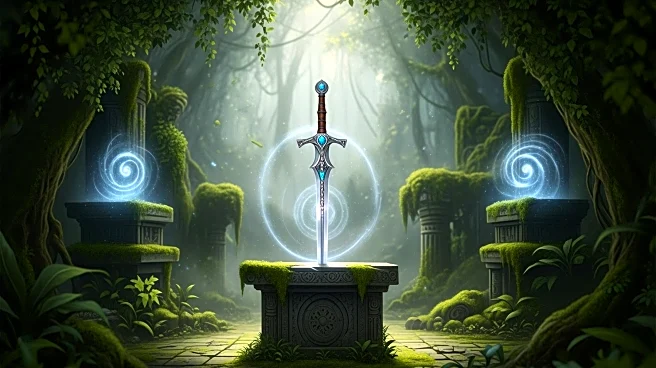What's Happening?
CD Projekt's co-CEO, Adam Badowski, has expressed his views on the structural choices made in The Witcher 2: Assassins of Kings, particularly the significant midgame decision that allowed players to experience
the game from two distinct perspectives. Badowski described this choice as an 'experiment' and ultimately a 'waste of resources' from a production standpoint. The Witcher 2's unique structure involved two separate paths, each with its own locations, characters, and quests, which was ambitious but resource-intensive. In contrast, The Witcher 3: Wild Hunt shifted focus to maintaining storytelling quality within a larger open world, moving away from such divergent paths. Badowski noted that the open world concept in The Witcher 3 was inspired by the success of Skyrim, despite initial doubts about combining narrative depth with expansive gameplay.
Why It's Important?
The comments from CD Projekt's co-CEO highlight the challenges game developers face in balancing narrative complexity with resource management. The Witcher 2's ambitious design offered players a unique experience but was deemed inefficient in terms of production resources. This insight is significant for the gaming industry as it underscores the importance of strategic planning in game development, especially when creating expansive worlds. The shift in focus seen in The Witcher 3 reflects broader industry trends towards open-world games that prioritize storytelling within vast environments. This approach has influenced the development of subsequent RPGs and set a benchmark for narrative-driven open-world games.
What's Next?
CD Projekt's reflections on past game development choices may inform future projects, potentially leading to more streamlined production processes that balance narrative depth with resource efficiency. As the gaming industry continues to evolve, developers might explore new ways to integrate complex storytelling without compromising on production costs. The lessons learned from The Witcher series could influence CD Projekt's approach to upcoming titles, including the anticipated Witcher 4, where maintaining narrative quality in expansive settings remains a priority.
Beyond the Headlines
The critique of The Witcher 2's structure raises questions about the ethical considerations in game design, particularly regarding player agency and the value of diverse experiences. While resource management is crucial, developers must also consider the impact of their design choices on player engagement and satisfaction. The balance between innovation and practicality in game development is a continuing conversation, influencing how future games are conceptualized and executed.









